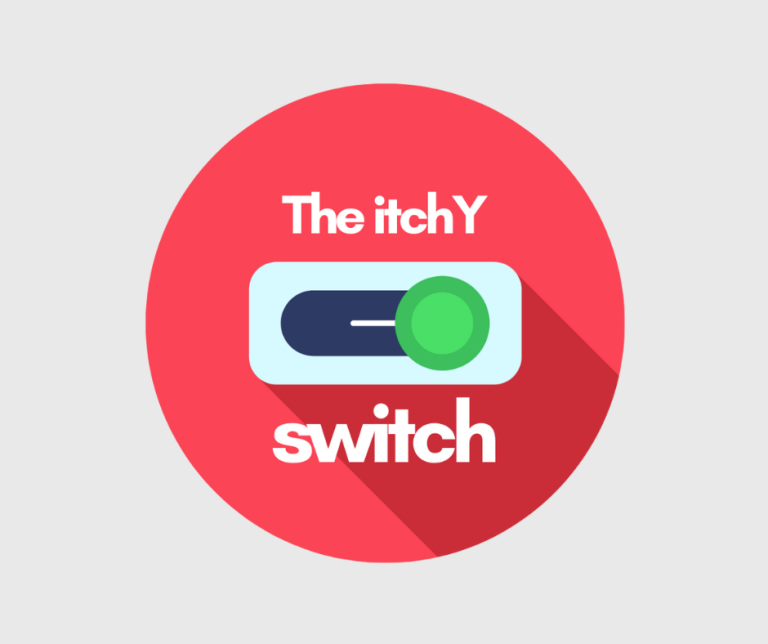Thank you for downloading!
Subscribe to our newsletter to receive email updates about our work, get connected and support Australians impacted by eczema. You can unsubscribe at any time.
Subscribe NowLiving with eczema can be challenging for teens and many teenagers can’t understand why they are affected by this skin condition. For teens, eczema can have an impact on their mental, emotional and physical well-being and because of the unpredictable nature of eczema, it can cause teens to feel lonely and self-conscious.
There are various triggers for teenage eczema, and while it can’t be cured, there are treatments available to manage the symptoms. Eczema Support Australia supports teens with eczema, connecting families through Social Media, providing advocacy and support services and factsheets and toolkits to empower teens and their families.

Welcome to “The itchY Switch” – a unique journey for teens with eczema. Real teens share their current experiences, discussing challenges and triumphs. Firsthand stories, coupled with insights from Dermatologist, Dr Lauren Kunde, and Provisional Psychologist, Raquel Walker, provide valuable tips for navigating eczema’s complexities. More than a resource, “The itchY Switch” is a platform tailored to teens.
Explore crucial topics like cream routines, self-care, coping strategies, and taking control of eczema management. Our videos showcase authentic teen experiences, offering insights and inspiration for facing similar challenges. You’re not alone in this journey.
Connect with our community through our closed Facebook group for teens and follow us on social media. Share stories, find support, and discover a network of individuals who understand. “The itchY Switch” is a teen-inspired resource, fostering empowerment and solidarity. Join us in shaping a brighter, more informed future. Let’s switch the narrative together!
Thank you to Ansvar Insurance for the Community Education Program grant which made this video resource possible.

Step into the gripping world of “S_Creams” – a short horror film that explores the challenges of eczema. While eczema can be a daunting experience, this video provides valuable insights and practical tips on managing it effectively with support. Uncover the darker side of eczema, but remember, there’s a path to empowerment and well-managed skin.
Embark on “The Skin Effect” journey inspired by Laura’s high school experience – navigating eczema, bullying, stigma, and stress. This video offers insights on working with a psychologist to effectively cope with both good and challenging days with teenage eczema. Discover resilience and empowerment in the face of adversity.
Join young teen Matthew on the transformative journey from childhood to adolescence in “Eczema Management Plan”. Gain insights into taking responsibility for your eczema management – a crucial aspect of growing up. Learn how health professionals can help craft a personalised management plan to suit your needs. Empower yourself on this journey of independence and self-care.
Ever wondered how brick building and basketball connect to eczema self-care? Join Harry as he shares his anxieties and coping strategies for life-long eczema, revealing brick building’s surprising role. Witness Matthew’s self-care approach, highlighting the influence of basketball. This video illuminates unique paths to managing eczema, showcasing the power of seemingly unrelated activities in the wellbeing journey. Discover effective ways to navigate eczema challenges.
Discover the strength of connection in “Twin Eczema”. Teenage twins Matthew and Harry share their journey, emphasising the importance of support from those who understand. Our expert dermatologist underscores the need for reliable advice. You’re not alone – connect with Eczema Support Australia and our Teenagers with Eczema community to navigate this journey together.
Dive into the heart of empowerment with “The itchY Switch” full video resource. Real teens share their eczema journey, accompanied by insights from Dermatologist Dr. Lauren Kunde and Provisional Psychologist Raquel Walker. From cream routines to self-care, gain valuable tips and connect with a community that understands. Each segment unfolds a unique aspect of the teen experience with eczema.
Unveil the magic of “The itchY Switch” with our behind-the-scenes video! Meet Rhea, a teen with firsthand experience navigating sleepless nights and the frustrations of managing eczema creams while grappling with the intense itch. Get sleep tips from experts and an exclusive peek into the creation of this empowering resource for teens with eczema.
A skin condition that can cause a teenager’s skin to become dry, itchy and inflamed. In lighter skin, eczema may look red. IN darker skin, eczema may look grey, purple or brown. It often appears under the elbow bends, on the backs of the knees, ankles or wrists, on the face, neck or upper chest, but can exist in other areas of the body.
Use our Eczema Care Online Toolkit to find out the best way to care for your eczema or your child's eczema.
Subscribe to our newsletter to receive email updates about our work, get connected and support Australians impacted by eczema. You can unsubscribe at any time.
Subscribe Now